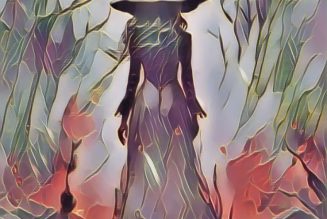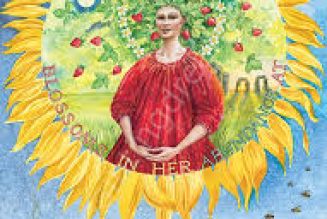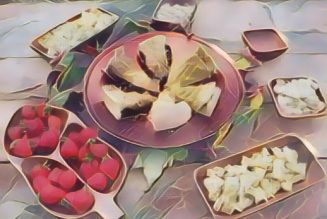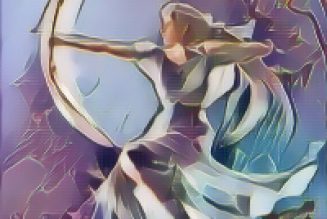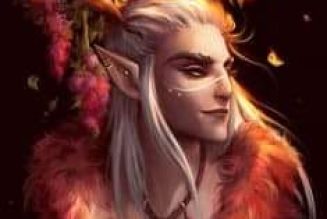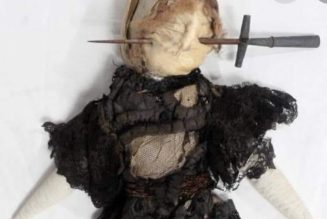One of the witches’ most important basic beliefs, obviously, is the reality and possibility of magic.
This involves the idea that the physical world is only part of reality, the part that we are able to apprehend with our five senses.
Beyond are vaster realms; and in these the witch seeks to venture.
This, again, involves a further belief, namely that human beings have more senses than the usual reckoning of five.
By means of these innate psychic capacities, the realms beyond the physical are contacted.
These powers, say the witch, are perfectly natural ; but latent and inactive in the majority of people.
They are powers that have become overlaid and hidden by the artificialities of civilisation ; but they can be reawakened.
This is one of the matters that have brought witches so often into conflict with the priests of orthodox religions.
The established religion of a country does not find it acceptable for people to have their own contact with the Beyond, independently of orthodox priests and their rules and sacraments.
This may well have been the reason why the socalled Witch of Endor had to live in hiding.
The Establishment does not like having its authority weakened.
Witches reject the masculine, patriarchal concept of God, in favour of older ideas.
They do not see why a rigid monotheism should necessarily be a sign of human advancement, as it is generally taken to be.
It seems more reasonable to them to conceive of divinity as being both masculine and feminine ; and as evolving moreover a hierarchy of
great beings, personified as gods and goddesses, who rule over the different departments of nature, and assist in the evolution of the cosmos.
If witches’ concept of God were to be more precisely defined, it could perhaps best be called Life itself-the life-force of the universe.
This, it seems to witches, must be basically benign, however apparently destructive and terrible some of its manifestations may be ; because if this is not so, then Life is divided against itself, which is absurd.
Moreover, it must be supreme wisdom, because of the wonder and beauty manifested in its myriad forms. Its tendency is to evolve forms capable of expressing ever higher degrees of intelligence ; so we who are its children should seek to live in harmony with nature, which is the visible expression of cosmic life, and in doing so find true wisdom and happiness.
Witches do not believe that true morality consists of observing a list of thou-shalt-nots.
Their morality can be summed up in one sentence, “Do what you will, so long as it harms none.”
This does not mean, however, that witches are pacifists.
They say that to allow wrong to flourish unchecked is not ‘harming none’.
On the contrary, it is harming everybody.
This bears some resemblance to Aleister Crowley’s law for the New Aeon :
“Do what thou wilt shall be the whole of the law. Love is the law, love under will.”
People often quote the first part of Crowley’s dictum, and claim that he advocated universal licence.
They forget the second part of his words.
Centuries before, Saint Augustine said something very similar :
“Love God, and do what you will.”
The idea of reincarnation seems to witches to be not only much older, but more reasonable and right, than the concept of only one short life,
to be followed by heaven for the righteous and hell for the wicked ; or than the materialist’s idea that when you’re dead you’re finished.
They quote the statement of the old occult philosophers-which could mean modern science supports-that nothing in this universe can be destroyed ; it can only change its manifestation.
Descartes said, “I think, therefore I am.”
Human individuality and intelligence exist.
Through the physical body, they manifest.
When the body wears out, or is damaged beyond repair, the person is said to be ‘dead’.
But it is the body which is dead.
You cannot bury or cremate people-only bodies. In so far as a person is an individual intelligence, can that individuality be destroyed ?
The testimony of all ages and countries says, “No.” But at the same time, nothing can stand still.
Everything is constantly changing and evolving.
To be imprisoned in the personality of John Smith or Jane Brown for all eternity, is no more consonant with cosmic Jaw than being annihilated.
Here we may notice the derivation of the word ‘personality’. It comes from persona, a mask.
There is that in us which truly says, “I am.” The personality is the mask it wears-a new one for each incarnation.
Between earthly incarnations, witches believe the soul rests in the Land of Faery, a pagan paradise like the Celtic Tir-Nan-Og, the Land of the Young.
Many references to this pagan otherworld can be found in British and Celtic legend.
It is a very different place from the Christian heaven, involving no harps, haloes nor golden gates, but a country like the old dreams of Arcady.
It is conceived of as being, not somewhere ‘up above’, but in another dimension co-existing with the world we can see with mortal sight.
Sometimes, say witches, we visit this other dimension in our dreams, and can bring back fragmentary recollections of it.
Another implicit belief is the power of thought, for good or ill. Truly, thoughts are things, and the realisation of this is one of the fundamentals of magic.
We have become accustomed to this idea as it is put forward in the modern world by the exponents of various movements, such as the so-called ‘New Thought’ , practical psychology and so on.
But as long ago as the beginning of the fourteenth century, Robert Mannying of Bourne wrote of the power of thought in his tale “The Wicche, the Bagge and the Bisshop”, an episode in his long poem Handlyng Synne.
This story tells of a naughty witch who made a magic bag of leather, that went about of its own accord and stole the milk from people’s cows.
Eventually she was arrested and brought before the bishop, together with the magic bag.
The bishop ordered her to give him a demonstration of her witchcraft, and she obliged by making the bag rise up and lie down again.
The bishop thereupon tried the charm for himself, doing and saying just as the witch had done ; but the bag never moved.
He was amazed, and asked the witch why the magic would not work for him.
She replied,
“Nay, why should it so ? Ye believe not as I do,”
and explained to him that
“My belief hath done the deed every deal.”
Whereat the bishop, rather set down,
“commanded that she should naught believe nor work as she had wrought”
This story is notable in that it ascribes the powers of witchcraft, not to Satan, as it would certainly have done in later centuries, but to the hidden abilities of the human mind ; and the bishop, instead of ordering the witch to be burned at the stake, simply tells her to go away and not do this again.
In Thirteen three, when this poem was commenced, the great illusion of ‘Satanism’ had not yet bedevilled men’s minds to the exclusion of reason.
Practitioners of magic have always emphasised that, although there are techniques to be acquired and the uses of magical accessories to be learnt, in the last resort it is the mind that holds the power of magic.
Paracelsus and Cornelius Agrippa, two famous adepts, said this in the sixteenth century ; and at the end of the nineteenth century Miss Mary A. Owen, telling of her investigations in America in Among the Voodoos (International Folk Lore Congress, London, Eighteen Ninety One ); said :
‘To be strong in de haid ‘-that is, of great strength of will-is the most important characteristic of a ‘conjurer’ or ‘voodoo’.
Never mind what you mix-blood, bones, feathers, grave-dust, herbs, saliva, or hair-it will be powerful or feeble in proportion to the dauntless spirit infused by you, the priest or priestess, at the time you represent the god or ‘Old Master’.”
This is the same as the witch belief, although it comes from the other side of the world.
There are two museums in Britain today which are devoted to showing the beliefs and practices of witches.
One is at Boscastle in Cornwall, and is run by Mr Cecil H. Williamson.
The other is at Castletown, Isle of Man, and is run by Mr and Mrs Campbell Wilson.



























